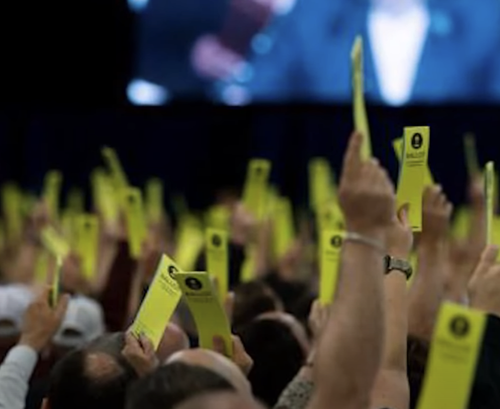To no one's surprise, 83% of white evangelical voters backed President Donald Trump in 2024, consistent with voting patterns in recent decades.
The news, this time, was that Cooperative Election Study numbers indicated that Trump's support rose among non-white evangelicals and Catholics. He even won 55% of the votes from mainline Protestants.
The voter base for Vice President Kamala Harris could be described as "Black Protestants + atheists," wrote political scientist Ryan Burge of Eastern Illinois University, in one of his Graphs about Religion X posts.
But in another chart, Burge shared 2022 Public Religion Research Institute data describing the attitudes of people in pews. Survey participants reacted to this statement: "I wish my church talked more about political division in this country."
Among evangelicals, 86% "completely" or "mostly" disagreed, compared to 82% of non-evangelicals and 74% of Catholics.
"Any pastor who chooses to speak up about political division in the United States is going to anger a whole lot of their flock. You just don't see a lot of church going folks who are keen on their pastor talking about … politics, just the opposite," noted Burge, author of "The American Religious Landscape: Facts, Trends, and the Future."
Meanwhile, it seems that "people who aren't religious or don't attend church on a regular basis have a misperception about what happens on a Sunday morning," he added, in his Substack newsletter. Truth is, the vast majority of churchgoers "just want to avoid politics entirely from the pulpit."
In my academic and news experience, that isn't what Americans learn from mainstream news. This week marks the start of my 37th year writing this "On Religion" column and I also spent 20 years leading the GetReligion.org project. That website's archive remains online for those studying religion and the press.
The bottom line: Religion events and trends draw intense news coverage when they are directly or indirectly linked to politics. This is especially true during tense elections.







